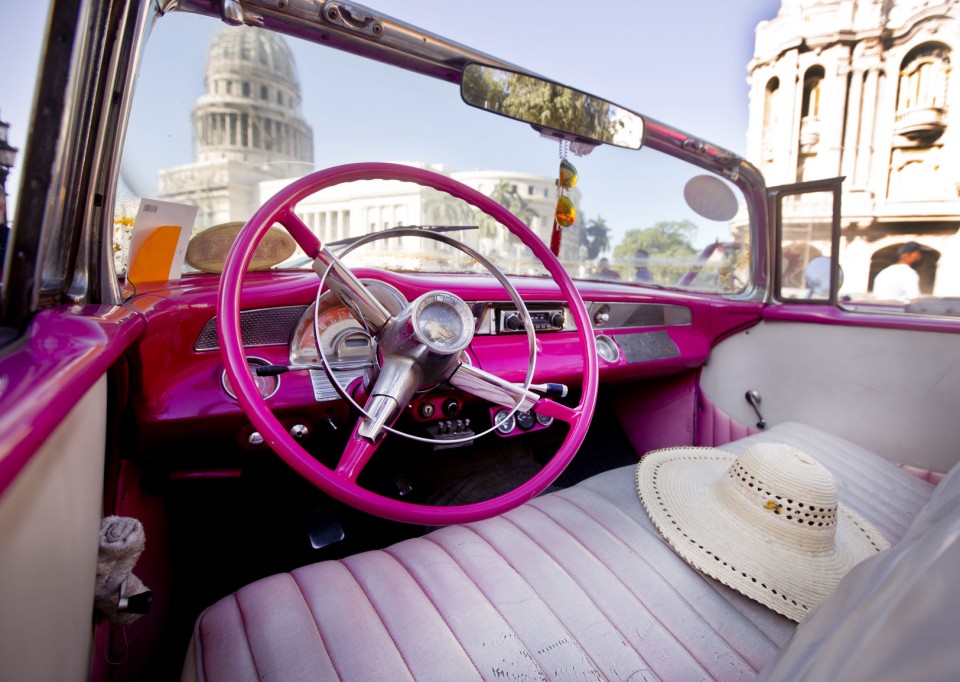The Everything-You-Need-to-Know Guide to Traveling (Smart) to Cuba
Travel restrictions to Cuba have relaxed in recent months, and eventually American citizens will be allowed to travel directly and freely to our southern neighbor in the Atlantic. Until that happens, it’s best to be aware that there are twelve categories of authorized travel by general license under which American citizens can lawfully visit Cuba.
Given the inevitable impact that increased American influence will have on Cuba and its culture, some people are deciding to make the journey sooner than later. If you are one of these people who are tempted to visit Havana now, here are a few tips for planning a smooth and enjoyable trip:
- Explore different options for booking your trip. There are organizations that sponsor people-to-people trips to Cuba for America citizens. Also try your local Chamber of Commerce or search the Internet for all-inclusive trips to Cuba.
If you decide to directly book your own trip instead, there are several websites that you can use for flights and accommodation (see below):
Flights
Direct flights between the U.S. and Cuba are extremely limited, but Americans commonly route through Canada, Mexico, and the Caribbean to arrive in Havana. Copa Airlines, Aeromexico, and Interjet are some the more popular airlines that fly into Havana. Flights can be booked directly via these companies’ websites or through sites like Cuba Jet or Sky Scanner that allow you to compare rates across multiple airlines.
Housing
“Casa particulares” (private homestays or accommodations) are common in Cuba. Known in shorthand as “casas,” these offer one of the most affordable housing options and can offer insight into daily Cuban life. There are several online directories via which you can book a casa, and many are now listed on AirBnb. Hotels are also available, ranging from five-star accommodations (Melia Habana, Hotel Saratoga, and Hotel Nacional de Cuba) to smaller properties at a lower price point.
Cars
The roads in Havana are ridden with massive potholes, so use caution when driving around town. Car Rental Cuba and Cuba Junky are useful travel agent websites where you can search for, and securely book, cars. If you decide not to rent a car, the Havana Metrobus and local taxis are great options for getting around town.
- Buy comprehensive travel insurance with international medical coverage, because your U.S. health plan will not cover you during your stay in Cuba. In fact, the Cuban government requires visitors from the U.S. to show proof of health insurance when entering the country, or they are obligated to purchase it at the airport, often at a higher cost than you would find on your own. International Medical Group is a great portal for comparing and selecting plans. As you explore options, ensure that the policy specifically includes coverage in Cuba.
- Make sure you get a Cuban Tourist card. While there is no official tourist visa that U.S. Citizens have to obtain, there is a Cuban Tourist card that you will be required to purchase and present upon arrival to and departure from Cuba. The card is $20 and can be purchased at your departure airport from the airline with whom you are traveling.
- Bring enough cash to finance your entire trip. American credit and debit cards are not accepted anywhere in Cuba (yet), so plan well financially. A good bet: Traveler’s Checks are accepted and exchanged for a fee. If you happen to outspend your budget while in Cuba, as a last resort you can have money sent via Western Union.
- Be mindful that WiFi access is largely limited to the hotels, and the rates run anywhere from $3-12 an hour depending on the exchange rate. If you’re planning an extended trip, it may be worth considering a mobile plan with T-Mobile or Verizon. Both companies offer roaming coverage in Cuba for varying rates.
- Bring copies of all your documents. Lastly, if you are traveling alone (while female) and passing through other countries during your journey, be sure to print off the information for your return trip to the U.S. so you can show it if asked. Women traveling alone through multiple countries have been known to raise suspicion among security officials.
Plan out the big parts of your trip to Havana, but give yourself some flexibility to “go with the flow” for at least part of your adventure. Geographically, Cuba is a small country, and there is much to explore within and outside of Havana, especially given the country’s storied past and the rapidly changing times its government is slowly embracing. There are museums, cabaret shows, salsa lessons, beaches, nightlight, restaurants…and the list continues. It’s tempting to want plan a detailed itinerary and do it all, but applying a “less but better” approach will allow you to really soak in the culture and maximize engagement in your experiences.
12 Interviewer Interview Prep
Interviewer Interview Prep Impactful Mentees
Impactful Mentees Benefits of a Mentor
Benefits of a Mentor Advice for First-Time Managers
Advice for First-Time Managers Overcoming the 18-month Itch
Overcoming the 18-month Itch Dressing for Your Style
Dressing for Your Style Interview Style Tips
Interview Style Tips Women's Stocking Stuffers
Women's Stocking Stuffers Gift the Busy Traveler
Gift the Busy Traveler Father’s Day Gift Guide
Father’s Day Gift Guide Airport Layover Activities
Airport Layover Activities Traveling & Eating Healthy
Traveling & Eating Healthy Travel Like a Boss Lady
Travel Like a Boss Lady The Dual California Life
The Dual California Life Gifts for Thanksgiving
Gifts for Thanksgiving Summer Reading List
Summer Reading List Top Leisurely Reads
Top Leisurely Reads New Year, New Books
New Year, New Books Life Lessons from a Sitcom
Life Lessons from a Sitcom Oprah, Amy or Amal?
Oprah, Amy or Amal?






